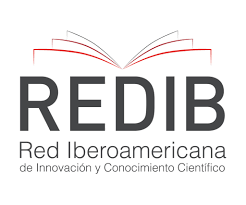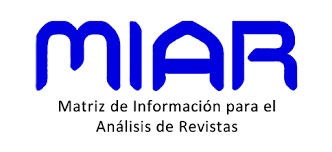The The idea of “environmental crisis” in praxis: weak sense and strong sense
DOI:
https://doi.org/10.51743/cpe.500Keywords:
environmental crisis, epistemology, polity, critical praxis, sustainabilityAbstract
This article addresses the category of global environmental crisis as an interpretative key for guiding systemic disputes. The main objective of this paper is to propose a general demarcation between two senses of environmental crisis, a weaker or broader and a stronger or narrower one, characterizing the difference in the pattern and level of realization in which current metabolic ruptures are translated in terms of competing systemic tendencies. To draw this distinction, a common ground of notions associated with the environmental crisis is first described. Second, the conditions (epistemological and political) of conceptual possibility and practical opportunity to elaborate it from these notions are analyzed.
Downloads
References
Becker, E., Hummel, D. & Jahn, T. (2013). Societal Relations to Nature as a Common Frame of Reference for Integrated Environmental Research. En Groß, M. (ed.): Handbuch Umweltsoziologie (pp. 75-96). VS Verlag für Sozialwissenschaften.
Bateson, G. (1998). Pasos hacia una ecología de la mente. Lohlé-Lumen.
Benhabib, S. (1986). Critique, norm, and utopia: a study of the foundations of critical theory. Columbia University Press.
Blaser, M. (2016). ¿Es otra cosmopolítica posible? Anthropologica (41), pp. 545-570. DOI: https://doi.org/10.14506/ca31.4.05
Callon, M.; Lascoumes, P., Barthe, Y. (2001). Agir dans un monde incertain: essai sur la démocratie technique. Seuil.
Castoriadis, C. (1991). Power, Politics, Autonomy. En Philosophy, Politics, Autonomy – Essays in political philosophy (pp.143-175). Oxford University Press.
Cole, M., (2003). Environmental Optimists, Environmental Pessimists and the Real State of the World. The Economic Journal, (113), pp. 362-380. DOI: https://doi.org/10.1111/1468-0297.t01-1-00141
Cooper, D. (1992). The Idea of environment. En Cooper, D. & Palmer, J. (eds.), The Environment in Question (pp. 163-180). Routledge
Descola, P. (2012). Más allá de naturaleza y cultura. Amorrortu.
Dewey, J. (1938). Logic: The Theory of Inquiry. Henry Holt.
Dower, N. (1994). Idea of the Environment. En Attfield, R. & Belsey, A. (eds), Philosophy and the Natural Environment (pp. 143-156). Cambridge University Press. DOI: https://doi.org/10.1017/CBO9780511524097.013
Eiff, L. (2010). Merleau-Ponty lector de Marx: La Praxis dialéctica como génesis de Sentido. A Parte REI (67), pp. 1-8.
Fotopoulos, T. (1997). Towards An Inclusive Democracy. Cassell.
Fraser, N. (2019) ¡Contrahegemonía ya! Siglo XX I.
Galafassi, G. (2000). Racionalidad moderna y problemática ambiental. Una interpretación a la luz de la articulación sociedad-naturaleza. IV Jornadas de Sociología. Facultad de Ciencias Sociales, Universidad de Buenos Aires.
Giddens, A. (1995). La constitución de la sociedad. Amorrortu.
Hegel, G.W.F (2005). Filosofía de la historia. Claridad.
Habermas, J. (1999). Teoría y praxis. Altaya.
Habermas, J. (2011). Escritos filosóficos. Paidós.
Haesbaert, R. (2021). Território e Descolonialidad: sobre o giro (multi)territorial/de(s)colonial na América Latina. CLACSO.
Harvey, D. (2018). Justicia, naturaleza y la geografía de la diferencia. Traficantes de sueños.
Harvey, D. (2020). Razones para ser anticapitalista. CLACSO. DOI: https://doi.org/10.2307/j.ctv1gm02zs
Horkheimer, M. (1998). Teoría Crítica. Amorrortu.
Hubert, M. & Prieto, M. (2024) Controversias en el conocimiento experto. La dimensión epistemológica de la cuestión ambiental. En Spivak L’Hoste, A., Hubert, M. & Mombello, L. (coords) Las sociedades frente al problema ambiental (pp.137-167). TeseoPress.
ISSC - UNESCO. (2013). World Social Science Report 2013: Changing Global Environments. Issc.
Koselleck, R. (2007). Crítica y crisis: un estudio sobre la patogénesis del mundo burgués. Trotta.
Kuhn, T. (2010). La estructura de las revoluciones científicas. Fondo de Cultura Económica.
Lefebvre, H. (2012). Hacia Un Romanticismo Revolucionario. Ediciones Nueva Visió n.
Lopes de Souza, M. (2011) Autogestión, Autoplaneación, Autonomía: actualidad y dificultades de las prácticas espaciales libertarias de los movimientos urbanos. En: Calderón Aragón, G. & Hernández, E. (Coords.) Descubriendo la espacialidad social desde América Latina. Reflexiones desde la Geografía sobre el campo, la ciudad y el medio ambiente (pp. 53-90). Itaca.
MacIntyre, A. (1977). Epistemological Crises, Dramatic Narrative and the Philosophy of Science. The Monist (60), pp- 453-472. DOI: https://doi.org/10.5840/monist197760427
Martín, F. N. (2023) Ilustración sensible. Hacia un giro materialista en la teoría crítica. IPS.
Marx, K. (2009). El capital. Siglo XX I.
McKibben, B. (2003). The end of nature. Bloomsbury Publishing.
Meneses, M. P., & Bidaseca, K. (coords.) (2018). Epistemologías del Sur. CLACSO. DOI: https://doi.org/10.2307/j.ctvnp0k5d
Merlinsky, G. (2013). Política, derechos y justicia ambiental. El conflicto del Riachuelo. Fondo de Cultura Económica.
Mitroff. I. & Sagasti. F. (1973). Epistemology as general systems theory: an approach to the design of complex decision-making experiments. Phil. soc. Sci. (3), pp.117-134. DOI: https://doi.org/10.1177/004839317300300109
Najmanovich, D. (2016). El mito de la objetividad. Biblos.
Natenzon, C.; M. Escolar & P. Tsakoumagkos (1988). Algunos límites ideológicos, económicos y conceptuales del discurso ecológico ambiental. En Yanes, L.& Liberali, A.M. (comps.) Aportes para el Estudio del Espacio Socioeconómico II (pp. 182-201). El Coloquio.
O’Connor, J. (2001). Causas naturales. Siglo XX I Editores.
Ojeda, O. & Sánchez, V. (1985). La cuestión ambiental y la articulación sociedad-naturaleza. Estudios sociológicos (3), pp. 25-46.
Polanyi, M. (2014). La República de la Ciencia: su teoría política y económica. Revista Iberoamericana de Ciencia, Tecnología y Sociedad (9), pp. 185-203.
Porto-Gonçalves, C. W. (2020). De caos sistêmico e de crise civilizatória: tensões territoriais em curso. Revista Da Casa Da Geografia De Sobral (22), pp. 103-132. DOI: https://doi.org/10.35701/rcgs.v22n2.687
Prieto, M. (2018a). Los enredos de una taxonomía: sociedades y naturalezas en las fauces de la crisis ambiental. En Palma, H. (edit.), Conexiones y fronteras. Desafíos filosóficos de las ciencias sociales en el siglo XXI (pp. 91-122). Biblos.
Prieto, M. (2018b). El floreciente borde entre la parte y el todo. Perspectivas epistemológicas de la complejidad social. En Palma, H. (edit.), Conexiones y fronteras. Desafíos filosóficos de las ciencias sociales en el siglo XXI (pp. 225-254). Biblos.
Prieto, M. (2022) La ciencia en su razón pública. El modelo de la ciencia con política. En Filosofía de las ciencias para el siglo XXI. Nuevos debates y problemas (pp. 106-137). UUIRTO
Scholz R., Sporri A. & Lang D. (2009). Problem structuring for transitions: the case of Swiss waste management. Futures (41), pp.171-181. DOI: https://doi.org/10.1016/j.futures.2008.09.013
Smith, G. (1988). Towards a Heuristic Theory of Problem Structuring. Management Science (34), pp. 1489-1506 DOI: https://doi.org/10.1287/mnsc.34.12.1489
Soper, K. (1995). What is nature? Culture, politics and the non-human. Blackwell.
Svampa, M. & Viale, E. (2020). El colapso ecológico ya llegó: Una brújula para salir del (mal)desarrollo. Siglo XX I.
Vega Cantor, R. (2009). Crisis civilizatoria. Herramienta (42).
Wang, T. (2014). A Philosophical Analysis of the Concept of Crisis. Frontiers of Philosophy in China (2), pp. 254–267.
Weber, M. (1946b). Science as Vocation. En Gerth, H. & Wright Mills, C. From Max Weber (pp. 129-156). Free press.
Welzer, H. (2010). Guerras climáticas: por qué mataremos (y nos matarán) en el siglo XXI. Katz.
Wieviorka, M. (2010). El conflicto social. Disponible en: Sociopedia.isa DOI: https://doi.org/10.4267/2042/38658
Winch, P. (1971). Ciencia social y filosofía. Amorrortu.
Downloads
Published
How to Cite
Issue
Section
License
The author reserves the rights (copyright) of the published works, and the journal encourages and allows their reuse, from the preprint. The works are published in the electronic edition of the journal under a license "Creative Commons Attribution / Attribution-NonCommercial 4.0 International Public License - CC BY-NC 4.0", and can be copied, used, disseminated, transmitted and publicly exhibited.
The author / s partially transfer the property rights (copyright) of this work for the printed and online editions, provided that:
- The authorship and original source of its publication (magazine, publisher and URL of the work) is cited.
- Are not used for commercial purposes.
- The existence and specifications of this user license are mentioned.
It also declares to have respected the ethical principles of research and to be free from any conflict of interest.
"C.P.E." encourages the authors and the scientific community to the maximum promotion and dissemination of the works in their final version through:
1) Your list of contacts (emails) and social networks (Facebook, Twitter, LinkedIn ...).
2) Institutional repository of your University and public repositories (Mendeley, Cosis ...).
3) Scientific social networks (ResearchGate, Academia.edu, Kudos ...).
4) Personal or institutional website, blog, etc.
5) Google Scholar, ORCID, ResearchID, ScopusID, Dimensions, PlumX ...
6) Printed copies purchased directly and sent to specialists for reading and subsequent citation if appropriate.




















1.png)
1.png)

1.png)





.png)
.png)

.png)
1.png)
1.png)
